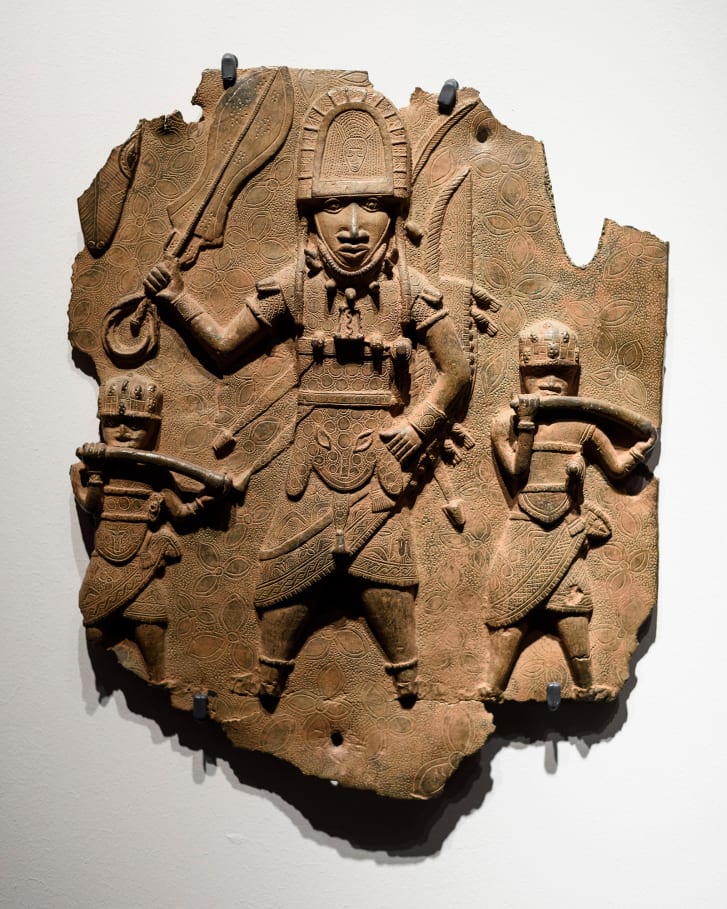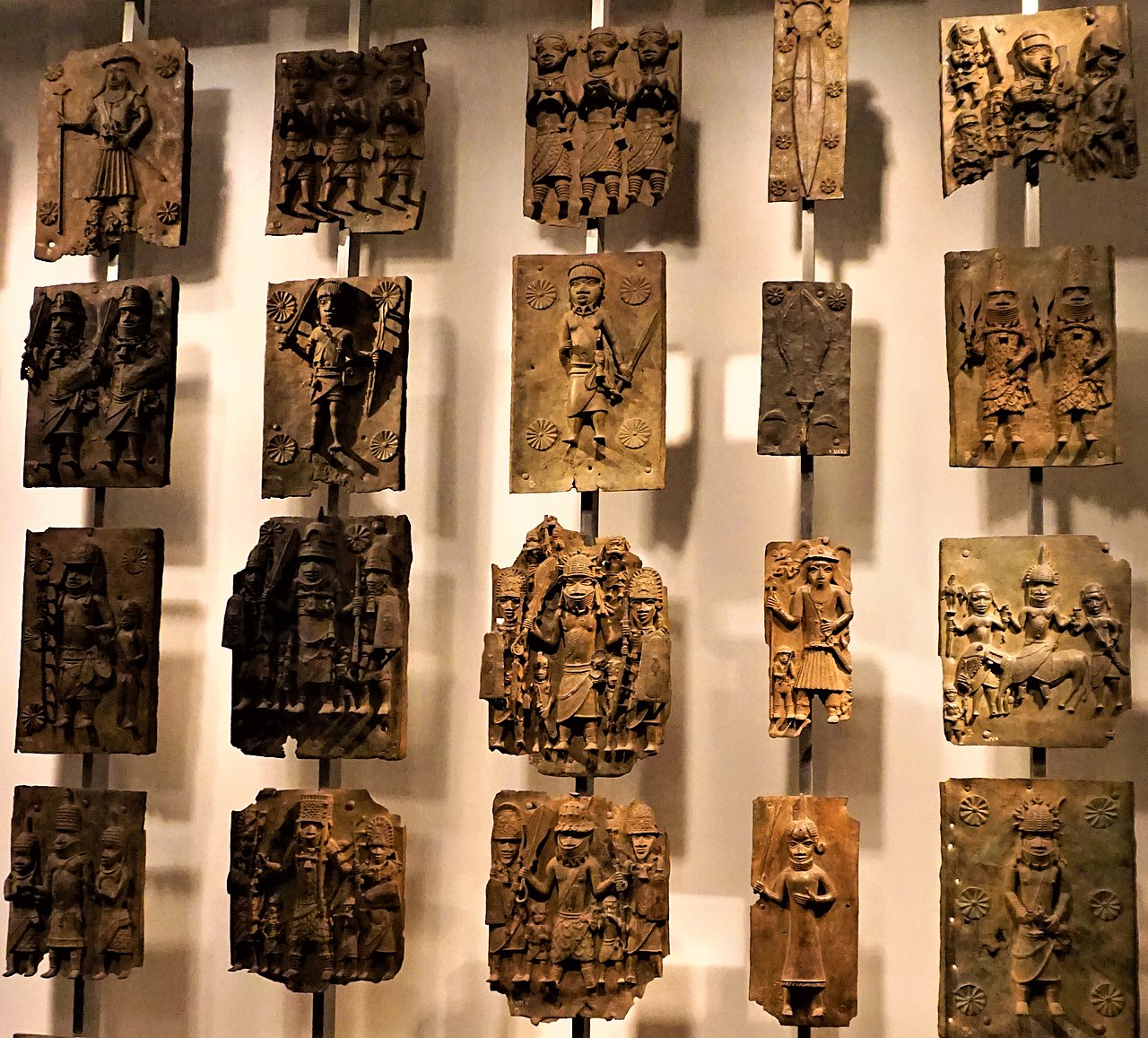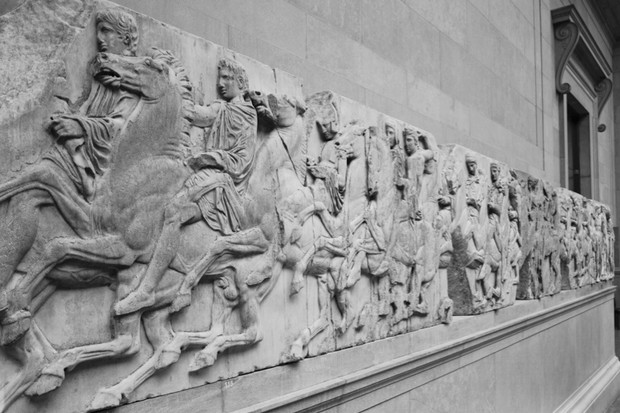“In 1897, British colonial forces razed Benin City, massacring an unknown number of people and bringing a violent end to the Kingdom of Benin, which had thrived for centuries as one of West Africa’s major powers.“During the raid, British troops looted at least 3,000 precious items made by the Edo people, including ivory statues, carved elephant tusks, ceramics, masks, carved portraits of Obas (or kings) and their mothers, and more than 1,000 intricately decorated brass plaques that once adorned ancestral altars and court buildings in the city’s royal palace.” – Smithsonian Magazine
It was significant then that recently several museums have committed to returning the stolen loot from the kingdom of Benin – most prominent being the 13th century Benin Bronzes.
But as institutions such as Berlin’s Humboldt Forum and Scotland’s University of Aberdeen commit to reinstituting Nigeria’s historical artifacts, the largest holdings of Benin’s work, the British museum, remains conspicuously quiet.

Credit: Adam Eastland/Alamy
Indeed, they hide behind conveniently created laws, such as the British Museum Act 1963 and the Heritage Act 1983…
The Benin bronzes no doubt throw up the old conversations, the ones that continue to plague those interested in the ancient world. Namely, what should be done with the Elgin (or more accurately names Parthenon) marbles.
If Nigeria can house these historic pieces in their “small but growing museum ecosystem,” according to Alex Greenberger of ARTNews, then surely Greece can too?
“Of course, we do have our problems, in term of the state of our museums in the country, but that will not remain as it is forever,” said Abba Isa Tijani, a member of Nigeria’s National Commission for Museums and Monuments, during the conference, per ARTNews.
While the removal of the marbles from the parthenon was not as violent as Benin City’s razing, they were no less unceremoniously taken from 1801 to 1812 by agents of Thomas Bruce, 7th Earl of Elgin.
Controversial even in its own time (Lord Byron, likened the Earl’s actions to vandalism or looting) the debate still rages on… should the British museum return the marbles to Athens?
This is a conversation we have brought up in the past, but as our world continuously changes (and indeed dramatically over the last pandemic year), we have to ask the question anew:
Should they give them back? Should historical pieces housed in museums around the world be repatriated? If Benin’s Bronzes, then why not “Elgin’s marbles” or any other significant piece, for that matter?
And at what point does it keep going? How far back? And to whom should the pieces go?
As always, you can write to me directly at [email protected] or comment below.












No comments yet. You should be kind and add one!
Our apologies, you must be logged in to post a comment.